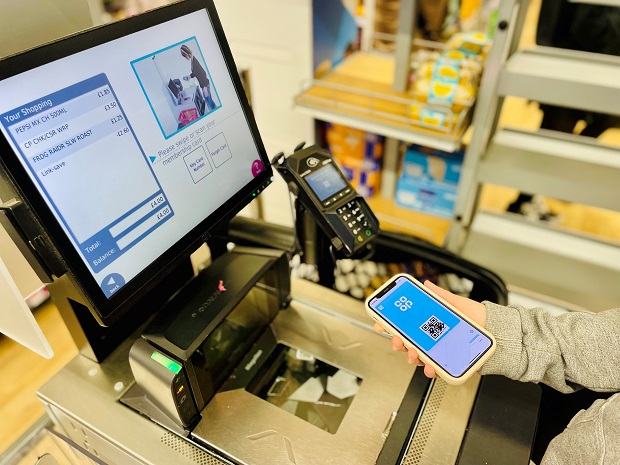As 16-year-olds start new college and sixth form terms, Co-op and Barnardo’s are calling on food retailers with loyalty schemes to review their polices and unlock further savings for young people to support with cost-of-living pressures during their studies.
 Co-op is the only national UK food retailer to offer 16 and 17-year-olds independent access to saving benefits as part of its membership proposition, from member pricing to personalised money-saving offers to member games and reward mechanics that provide discounts in store. Under 16s are also eligible to become junior members, with parent or guardian permission.
Co-op is the only national UK food retailer to offer 16 and 17-year-olds independent access to saving benefits as part of its membership proposition, from member pricing to personalised money-saving offers to member games and reward mechanics that provide discounts in store. Under 16s are also eligible to become junior members, with parent or guardian permission.
 Other food retailers, with loyalty schemes, only offer exclusive additional saving benefits to shoppers who are over 18 – denying millions of young people access to loyalty value in their stores.
Other food retailers, with loyalty schemes, only offer exclusive additional saving benefits to shoppers who are over 18 – denying millions of young people access to loyalty value in their stores.
A good example is the ever-popular lunchtime meal deal, which is often purchased as a value lunch option for students across the UK. With the membership discount in Co-op, 16 and 17-year-olds can save on average £60 a year*, a saving not currently accessible to them in some other retailers. Additionally, research** from Co-op has uncovered that 73% of 16 and 17-year-olds have chosen not to buy food or drink products from a retailer due to higher prices when not using a loyalty card.
In 2024, Barnardo’s – in partnership with Co-op – released a policy report called Recipe for Success that highlighted the importance of access to food for young people’s well-being. The report set out several recommendations to Government and food retailers to make impactful changes, one of these being to consider ways that 16 and 17-year-olds can access discounted food by amending the terms of their retail discount schemes or considering the introduction of other discounts.
The report also included Co-op member data that unveiled that 97% of Co-op members aged 16-25 believe that retailers should look at ways of increasing access to affordable food for young people, particularly as they become more independent. A year after this report’s release, UK food retailers still have not changed how under-18s access loyalty value.
Furthermore, Co-op recently sent a joint letter – with Barnardo’s and Which? – to the Secretary of State for Environment, Food and Rural Affairs to ask for support in making sure that 16 and 17-year-olds are no longer excluded from food retail discounts.
Rachel Halter, Director of Membership at Co-op, said: “We see firsthand the volume of young people that come into our stores to buy food and drink, a number which increases during term times, as they depend on our stores during their studies.
“I feel strongly that opening access to value for young people is an important issue, one we’ve been campaigning on with Barnardo’s for more than 12 months and we’re yet to see any changes. It seems wrong to me that we are close to allowing 16-year-olds the ability to vote, yet they can’t access lower price food and offers to save money when shopping from many retailers. Allowing 16 and 17-year-olds membership delivers in a truly co-operative way, providing both economic and social value to the individuals and the community.”
Under 18’s access to value via retailers’ loyalty propositions is not only an issue for young people that are studying, but it also proves to be a particularly important issue for young people that live independently or for those that are classed as young carers.
Lynn Perry, Chief Executive of Barnardo’s, said: “Our research with Co-op found that nearly one in four secondary and college-aged students were struggling to access healthy food in their communities. It means too many young people haven’t got access to the affordable and nutritious food that will help them thrive, both now and into adulthood.
“We’re proud to be working alongside Co-op on this important issue, supporting positive futures for young people. With back-to-school season upon us, we urge all supermarkets to make a fresh start and expand their retail discount schemes to 16- and 17-year-olds.”
Ola Anretioloaluwa, a 20-year-old university student from London, is a member of the Co-op and Barnardo’s Youth Advisory Group*** and has been working alongside both organisations to raise awareness of this issue, said: “It isn’t fair that young people are shut out of discounts and offers just because of their age. The cost-of-living crisis is hitting everyone hard, and young people aren’t excluded from that – so why should they be excluded from discounts?”
The joint call for retailers to unlock loyalty value for young people follows Co-op’s new social value strategy announcement last month, where the consumer co-operative pledged to deliver social value across every part of its business. Guided by its 6.5 million members, Co-op’s social value strategy reaffirms its dedication to addressing key issues like climate change, sustainability, social mobility, and diversity and inclusion.
Co-op has a long-standing history of supporting young people and continues to work as sponsor of Co-op Academies Trust – supporting over 20,000 students across 38 schools – and widening access to opportunity through the opening of new specialist SEND schools, drawing on co-operative values to drive positive outcomes and experiences.
- *Based on an average of three lunchtime meal deal purchases per week, for 40 weeks of the year, saving 50p with Co-op membership on each purchase.
- **Research was conducted by Opinion Matters, among a sample of 1,000 16-17 year olds in the UK. The data was collected between 20.08.25 – 29.08.25. Opinion Matters abides by and employs members of the Market Research Society and follows the MRS code of conduct and ESOMAR principles. Opinion Matters is also a member of the British Polling Council.
- ***The Co-op and Barnardo’s Youth Advisory Group assists our partnership in supporting positive futures for 1 million young people across the UK. Made up of 13 young people aged 16-25 across the UK, the Youth Advisory Group help amplify the voices of young people from our services, creating content for our online support and meeting policy makers to advocate on issues affecting young people



Comments are closed.